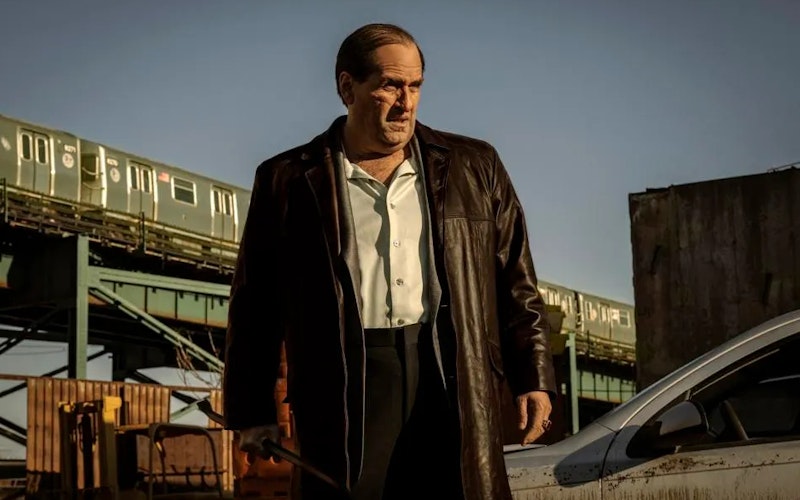
TV
The Penguin’s Perilous Path
The Penguin warns us that when we meet our flaws with anger and aggression, rather than humility and acceptance, we only end up debilitating ourselves further.
The HBO Max series, starring Colin Farrell as Oswald “Oz” Cobb, showcases the origin story of the classic Batman villain. In the first episode, Oz is not the sole crime lord of Gotham, but a mid-level hustler for the Falcone family. Walking with the assistance of a brace, which causes an unmistakable limp, Oz is nicknamed “Penguin”—a moniker of derision that he hates. For Oz, it’s just one more reason for others to snicker and stare at him. Oz was also raised by a single mother amid the slums of Crown Heights, Gotham’s poorest neighborhood. Bitter about these disadvantages, he sets out to make a name for himself—to turn himself from a “nobody” to a “somebody.”
In previous iterations of the Batman legend—whether in films, cartoons, or comic books—Gotham City has many layers: seedy underground crime spots; ritzy Bruce Wayne manors; dingy police stations; and $1,000-a-plate fundraisers. The Penguin, however, takes place almost exclusively in the slums and abandoned, underground train stations at or below sea level. A dark, comic-noir sensibility radiates in every scene. Even for well-lit shots in broad daylight, there is a grittiness that keeps the light at bay and the shadows pronounced. You can feel the streets’ stale humidity, which serves as an extension of Oz’s character. This is not a place he wants to improve, but control for his own advantage.
Oz forms a bond with a young protégé named Victor “Vic” Aguilar (Rhenzy Feliz), a poor teenager from Crown Heights. Oz instantly connects with him when he hears Vic’s pronounced stutter. In the third episode, Vic struggles to order at a restaurant, unable to let the words from the menu roll off his tongue. The waiter interrupts Vic to finish the order for him, which sends Oz into a tirade. On the podcast Oysters, Clams, and Cockles, Oz is compared to Tyrion Lannister from Game of Thrones, who has a soft spot in his heart for “cripples, bastards, and broken things.” Oz, in the presence of another “broken thing,” sees a kindred spirit in his young understudy.
Oz and Vic proceed to gather all the downtrodden, B-team villains in Gotham in order to take on the A-team criminals: the Maronis and the Gigantes. It’s a warped battle between the haves and the have-nots. Herein lies the catastrophe of trying to overcome your flaws through your own, embittered means. Oz believes that his path to validation goes through retribution and violence. On the backs of others, he can finally become somebody. But as we see throughout the season, this path doesn’t lead to wholeness, only more destruction and heartache.
Bitter about his disadvantages, Oz sets out to make a name for himself — to turn himself from a “nobody” to a “somebody.”
I wonder if our churches are sometimes susceptible to this way of thinking. When faced with flaws or difficulties, rather than address them with humility, do we have a proclivity—like Oz and his gang—to strike out with a show of strength? We sometimes band together to hide our flaws, hoping to protect our position by force. It’s a message that is preached outside of the church—in sports and business, for example—and it seems to work.
But the Apostle Paul prescribes a different solution for God’s people. In 2 Corinthians 12, Paul exhorts us to “boast” about our weaknesses, for God’s power is made perfect in them. By setting our flaws and disadvantages at the feet of Christ, trusting in him to take them on, the power of Christ will rest on us. Our perceived disadvantages are the very avenue that leads us to the gospel promise we have in Jesus: that through his work on the cross—where Christ was broken and laid vulnerable on our behalf—we were made whole.
Oswald Cobb was right in his attempt to band together a group of people who shared similar disadvantages. In some ways, that is a model for the church. But in organizing his followers toward a violent grab for power, he fails to follow a righteous path. Our path is not to become “somebody” in the eyes of the world, but somebodies in Christ—creating a community in his image and his likeness.
_______________
At Think Christian, we encourage careful cultural discernment. We recognize and respect that many Christians choose not to engage with pop culture that contains particular content, such as abuse, sex, violence, alcohol or drug use, or that employs the use of coarse language. To that end, we suggest visiting Common Sense Media for detailed information regarding the content of the particular pieces of pop culture discussed in this article.
Topics: TV